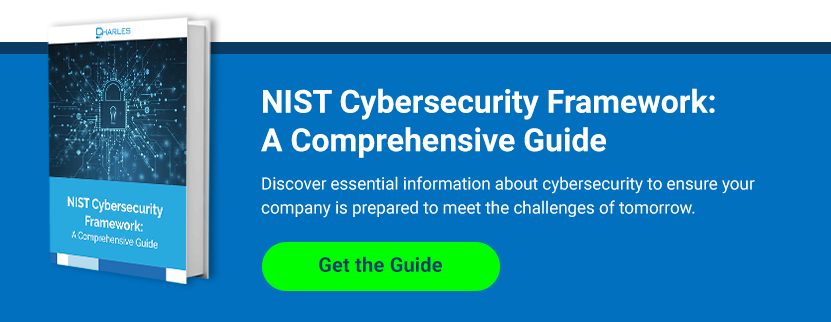Many small businesses do not consider themselves worthy enough targets for more advanced attacks, such as advanced persistent threats (APTs). As such, they often have only minimal cybersecurity controls in place to protect them against everyday threats such as mass phishing scams and common forms of malware.
This thinking is a big mistake. The reality is that every organization or individual is a potential target. In fact, small businesses present something of a sweet spot for attackers, who usually view them as easy targets that nonetheless have a lot of data worth stealing. Because of this, even small businesses need enterprise-grade security.
One of the most commonly adopted frameworks is the NIST Cybersecurity Framework, which is published by the National Institute of Standards and Technology. The framework details the various processes and technical measures that need to be applied to detect, respond to, and recover from security-related incidents.
Is the NIST Cybersecurity Framework for small businesses?
One of the most common complaints about NIST small business implementations is that they are prohibitively expensive for small businesses. Given that the framework primarily caters to critical infrastructure, this is an understandable point, but it fails to address the fact that every business, regardless of its size or industry, needs sufficiently robust cybersecurity measures and policies in place. After all, the cost of a data breach usually exceeds the costs it takes to avoid it in the first place by many orders of magnitude.
Another issue with this approach is that it tends to consider the NIST Cybersecurity Framework as little more than a list of controls that need to be applied. It is in fact, much more than that and, given its very broad scope, it is likely that some of the controls specified will not even be relevant to your business’s computing environment anyway. As such, it should be taken as a foundational guide and an educational resource for the most part. That said, it does serve as the basis for many regulatory frameworks, such as CMMC and DFARS in the defense sector.
How can my business implement the NIST framework affordably?
It is entirely understandable that no small business has the financial and human resources to build and maintain a fully NIST-compliant cybersecurity environment. However, that does not mean it is impossible. The key to success to figuring out where to delegate security solutions to a dependable third-party, such as a managed security services provider (MSSP).
MSSPs have a vested interest in ensuring that nothing makes it past your defenses. After all, their entire reputations and sustainability of their businesses depend on it. Furthermore, having a fully-staffed IT security team and in-house chief information security officer (CISO) will likely be overkill for most smaller organizations. Instead, outsourcing these roles and the processes and measures associated with them presents a far more affordable and scalable alternative.
Most importantly, achieving NIST small business compliance with the help of the right partners can help you achieve the same level of security maturity as that which large enterprises usually take care of in-house. For example, a fully managed detection and response (MDR) service can proactively detect and respond to potential threats before they make it past your last line of defenses. Another powerful solution is Security Incident and Event Management (SIEM), which provides in-depth forensic analysis and complete auditability of security-related events across your entire technology environment. Like MDR, this service can also be outsourced and managed externally.
Other measures can also be applied with the help of a dependable partner, such as endpoint encryption and multifactor authentication. These layers of security are vital for protecting data, particularly at a time when many people are working from home and using their own devices.
In the end, achieving full compliance with the NIST Cybersecurity Framework does not have to be prohibitively expensive, and the business benefits are indisputable. Becoming compliant not only reduces business, but improves your credibility and makes you more attractive to both buyers and investors alike.
Charles IT provides the full range of services that businesses need to become fully compliant with the NIST Cybersecurity Framework. Get in touch today to schedule your first consultation!

.png)



